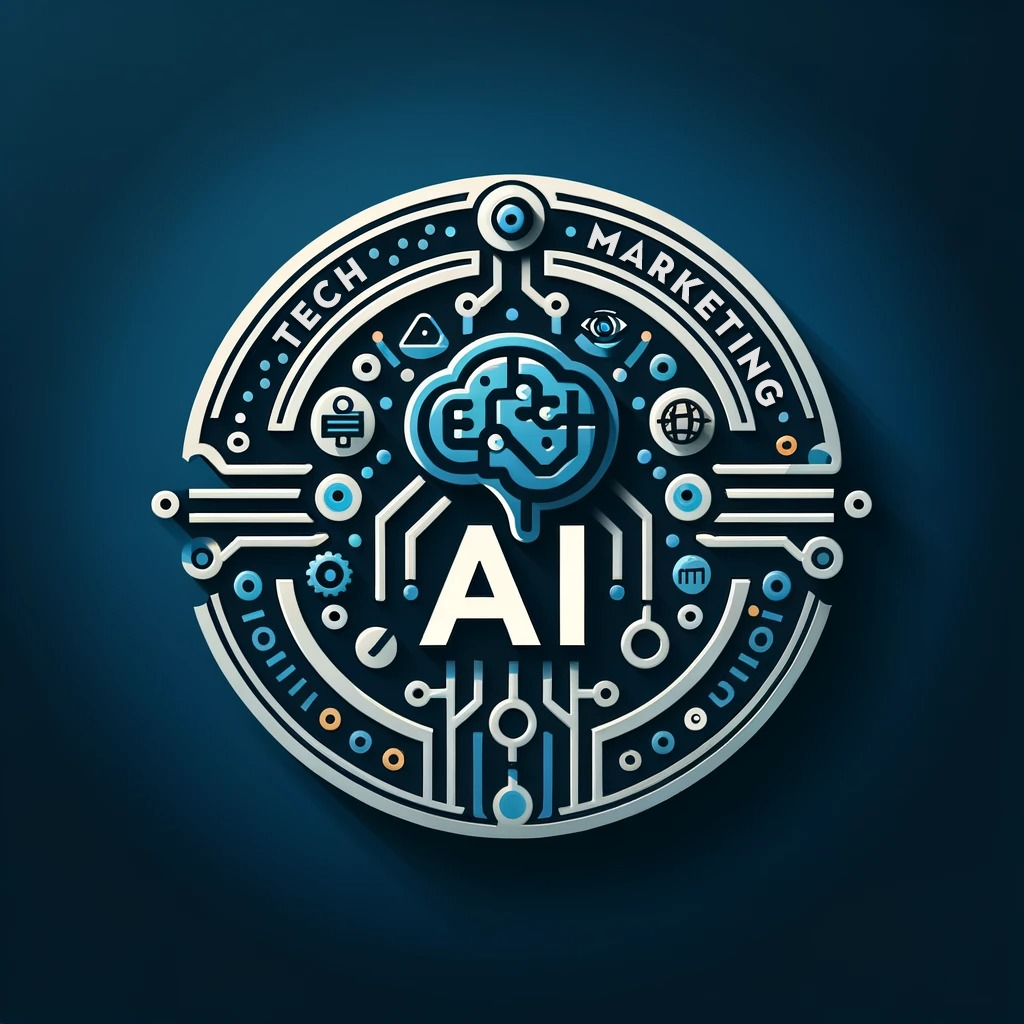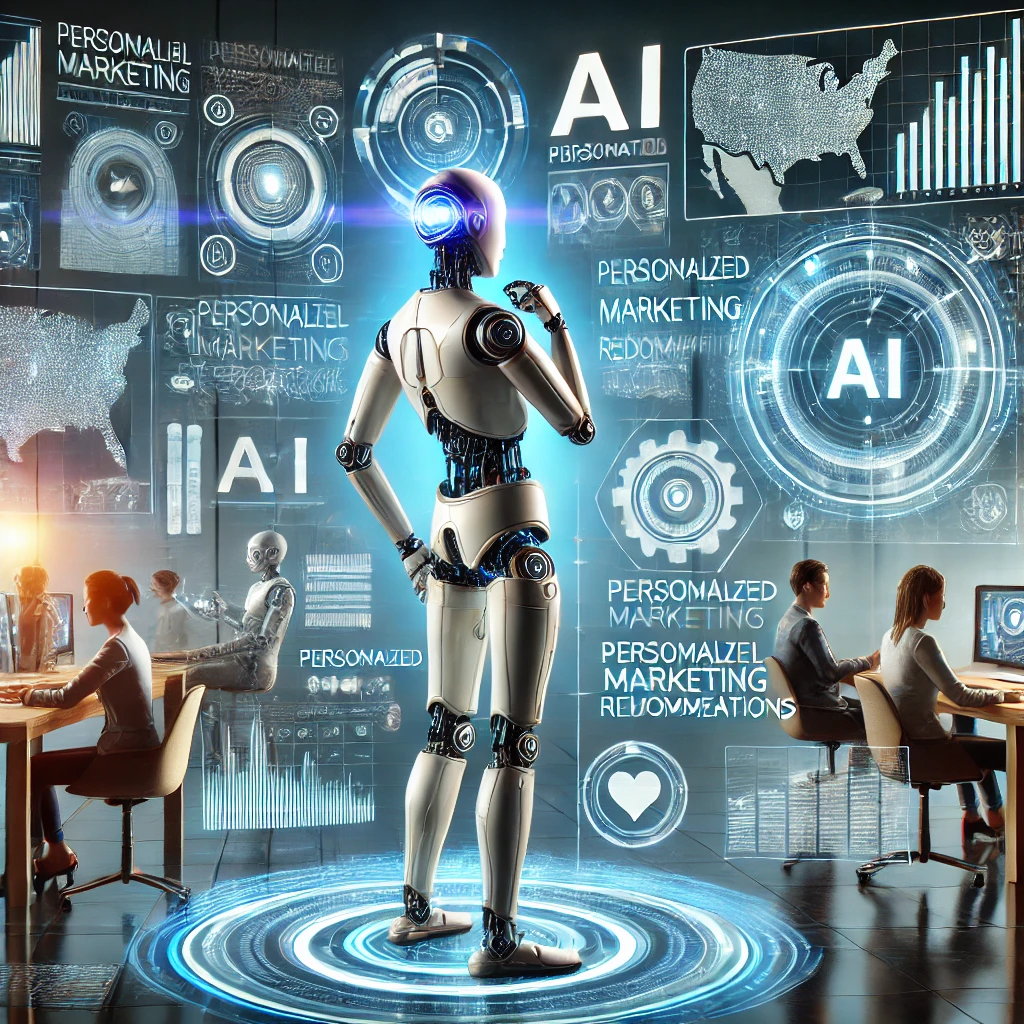The world of digital marketing has always evolved rapidly, but in 2024, artificial intelligence (AI) is taking it to new heights. AI-powered tools and platforms have redefined how brands connect with customers, drive growth, and boost conversions. In markets like the USA, UK, Canada, and Australia, where consumers are digitally savvy, leveraging AI in marketing campaigns is no longer optional—it’s a necessity for brands aiming to stay competitive.
5 Key Takeaways
- AI-driven personalization enhances customer experience and engagement.
- Predictive analytics enables data-driven decision-making in real-time.
- AI chatbots automate customer service for 24/7 support and sales.
- Content generation with AI simplifies SEO and drives organic traffic.
- AI tools improve ad targeting, reducing costs and increasing conversions.
The Role of AI in Digital Marketing: A 2024 Overview
Artificial intelligence has become the engine driving various aspects of digital marketing. Its potential lies in the ability to process and analyze vast amounts of data quickly and effectively. AI tools provide valuable insights, allowing marketers to create highly personalized, data-driven campaigns that resonate with individual consumers. The outcome is more efficient marketing, enhanced customer experiences, and higher return on investment (ROI).
1. AI-Driven Personalization: Elevating User Experience
One of the most significant benefits AI brings to digital marketing in 2024 is hyper-personalization. Today’s consumers expect a tailored experience when interacting with brands, and AI helps marketers deliver exactly that.
AI tools analyze user data such as browsing behavior, purchase history, and demographics to create personalized product recommendations, content, and ads. For example, Amazon’s recommendation engine uses AI algorithms to predict and suggest products based on previous purchases and browsing patterns, boosting sales and user satisfaction.
Similarly, in the UK, fashion retailer ASOS utilizes AI for personalized product suggestions and to optimize customer journeys. In Canada, streaming giant Spotify leverages AI to personalize music playlists, like its popular “Discover Weekly” feature, further enhancing user engagement.
2. Predictive Analytics: Turning Data into Insights
AI-powered predictive analytics tools have transformed how marketers make decisions. These tools analyze historical data to predict future trends and consumer behavior, helping brands craft highly targeted marketing campaigns. This data-driven approach reduces guesswork and ensures that marketing efforts are more aligned with audience needs.
In the USA, companies like Netflix and Hulu use predictive analytics to understand user preferences, improving content recommendations and optimizing ad targeting. Predictive analytics is also used in paid media campaigns. For instance, AI tools like Google’s Performance Max or Meta’s Advantage+ leverage historical ad performance data to improve ad delivery, targeting, and conversion rates.
3. AI-Powered Chatbots: Automating Customer Service
AI-driven chatbots have become indispensable for digital marketing strategies in 2024. These virtual assistants provide real-time, personalized customer support, responding to queries and guiding users through their purchasing journey. By automating routine interactions, businesses can focus more on complex issues and provide 24/7 customer service without needing human intervention.
For instance, in Australia, energy provider Origin Energy uses AI chatbots to manage customer inquiries, troubleshoot problems, and offer personalized service recommendations. Similarly, H&M in the USA uses AI chatbots to assist customers with product searches, offering style suggestions based on their preferences.
4. AI in Content Creation: Simplifying SEO and Engagement
Content remains king in digital marketing, but creating quality content at scale is a challenge. AI tools are helping marketers generate relevant, SEO-optimized content faster than ever before. AI writing tools such as Jasper AI, Copy.ai, and Writesonic can produce blog posts, social media updates, and ad copy that are aligned with a brand’s tone and optimized for search engines.
In Canada, AI content generation is being used by local businesses to boost their SEO efforts, helping them rank higher on Google search results and drive more organic traffic. AI also helps marketers analyze trending keywords, optimize on-page SEO, and improve readability, ensuring content aligns with search intent and captures relevant audience segments.
5. Enhanced Ad Targeting and Programmatic Advertising
AI-powered tools have made ad targeting smarter and more effective. Programmatic advertising, which uses AI to automate the buying and selling of ad space, has revolutionized the way brands reach their target audience. These AI-driven platforms use real-time data to bid for ad placements, ensuring that ads are shown to the right people at the right time.
In 2024, advertisers in the USA, UK, and Australia are using tools like Google Ads’ Smart Bidding and Facebook Ads’ Dynamic Ads, which leverage AI to analyze user behavior and optimize ad spend automatically. This approach improves targeting precision, reduces advertising costs, and increases return on ad spend (ROAS).
In the UK, Tesco uses programmatic advertising to deliver highly relevant ads to its customers based on their shopping habits, enhancing engagement and driving higher sales. The success of programmatic advertising highlights how AI is reshaping paid media strategies across different regions.
Top AI Tools for Digital Marketing in 2024
To harness the power of AI effectively, digital marketers rely on cutting-edge tools and platforms. Here are some popular AI-driven marketing tools used across the USA, UK, Canada, and Australia:
1. Jasper AI
Jasper AI is a popular content-generation tool that helps marketers produce high-quality blog posts, ad copy, and social media content with minimal effort. This AI tool optimizes content for SEO and is widely used in Canada and the USA.
2. HubSpot AI
HubSpot’s AI-powered marketing platform offers tools for personalized email marketing, predictive lead scoring, and automation, making it an essential choice for businesses in the UK and USA.
3. Google’s Performance Max
This AI-driven campaign management tool allows advertisers to use a single campaign type that optimizes across all Google Ads inventory using AI. It is widely adopted in Australia and the USA.
4. Meta’s Advantage+
Advantage+ utilizes AI to automatically optimize Facebook ad campaigns, ensuring that ads are delivered to the most relevant audience. It’s popular in the USA, UK, and Canada.
5. Sprout Social AI
Sprout Social uses AI-powered analytics to help brands manage their social media presence. The tool is widely used in Canada and the UK for tracking social media engagement and optimizing content strategies.
Emerging AI Trends in Digital Marketing for 2024
As AI continues to evolve, several key trends are shaping the future of digital marketing:
1. Conversational AI
Conversational AI, including advanced chatbots and voice assistants, is becoming more sophisticated. In 2024, businesses in the UK and USA are increasingly integrating voice search optimization into their digital marketing strategies to cater to users of AI-powered assistants like Amazon’s Alexa and Google Assistant.
2. AI in Video Marketing
Video content continues to dominate in 2024, with AI playing a pivotal role in video personalization and editing. AI tools like Pictory and Synthesia help brands in Australia and Canada produce high-quality videos with ease, driving more engagement across platforms like YouTube and TikTok.
3. Predictive Content Creation
Marketers are leveraging AI to predict which type of content will perform best before even creating it. This is achieved by analyzing user data, social media trends, and keyword performance. AI tools like BuzzSumo are helping brands in the USA and UK stay ahead of content trends, ensuring they capture audience attention.
4. Hyper-Automation of Marketing Processes
AI is driving the hyper-automation of marketing workflows, from email marketing to social media scheduling. Tools like ActiveCampaign and Mailchimp are enhancing AI-driven email automation, allowing marketers to deliver hyper-targeted campaigns effortlessly.
5. AI in Sentiment Analysis
Brands are increasingly using AI to analyze social media conversations and customer feedback in real-time. Sentiment analysis tools help companies in Canada and Australia understand how customers feel about their brand, enabling them to adjust their strategies quickly.
How to Leverage AI for Your Marketing Strategy
To integrate AI into your digital marketing strategy, follow these steps:
1. Identify Your Marketing Goals
Before adopting AI tools, determine your specific marketing objectives. Are you looking to improve customer engagement, drive traffic, or reduce ad spend? Your goals will guide which AI solutions you implement.
2. Choose the Right Tools
Select AI tools that align with your marketing needs. For content generation, tools like Jasper or Copy.ai are excellent. If you’re focusing on customer service, invest in an AI chatbot like Drift or Tidio.
3. Start Small and Scale
Begin by testing AI tools in a limited capacity, such as automating email campaigns or optimizing ads. Once you see positive results, gradually scale AI integration across other marketing channels.
4. Monitor Performance and Optimize
AI tools are powerful, but they require constant monitoring. Use analytics and reporting features to measure the performance of your AI-driven campaigns. Adjust your strategy based on the insights AI provides, ensuring optimal results.
5. Keep Up with AI Trends
AI technology is constantly evolving, so stay informed about the latest tools and trends in digital marketing. Regularly update your strategies to stay ahead of the competition.




